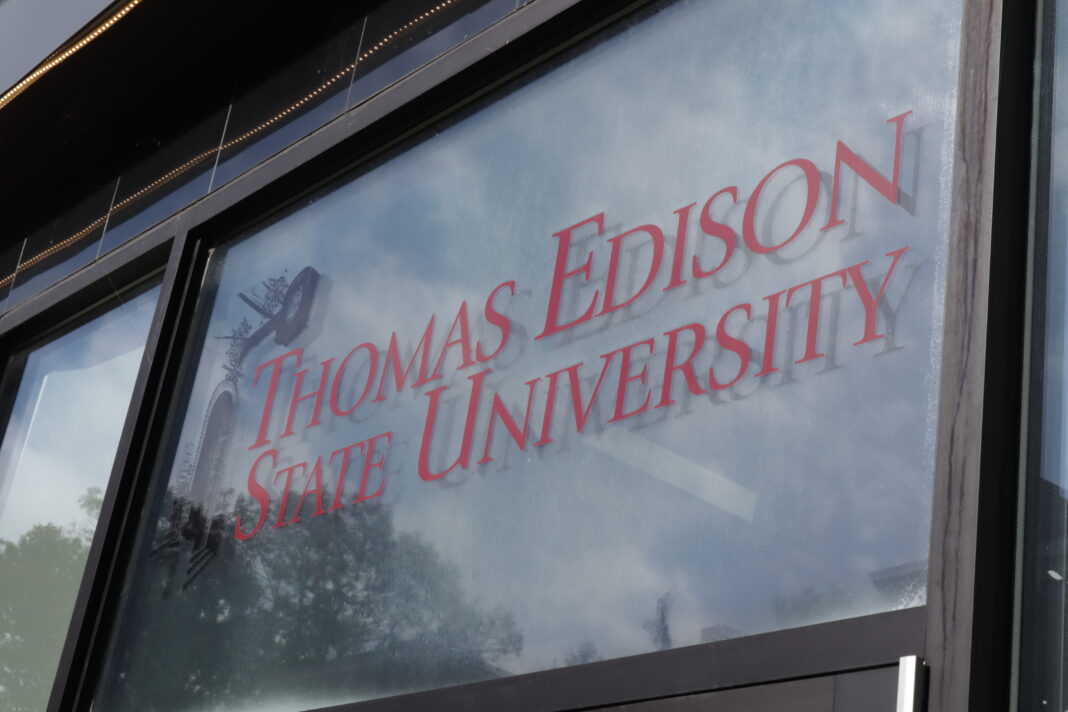Professional trade or college education? Thanks to an innovative program at Thomas Edison State University (TESU), a group of local electricians no longer has to choose between the two.
The International Brotherhood of Electrical Workers (IBEW) Local 269 Joint Apprenticeship & Training Committee, has signed an agreement with TESU awarding IBEW members academic credit for their Inside Wireman Apprenticeship Training program. The agreement provides IBEW apprentices a pathway to an Associate in Applied Science (AAS) degree in Applied Electronic Studies at the university.
“The Joint Apprenticeship & Training Committee (JATC) is honored to be partnering with TESU to provide a viable pathway towards acquiring a college degree by leveraging hard-earned vocational skills,” said Jim Stover, training director at IBEW Local 269 JATC. “The agreement will provide our members the opportunity to take their skills to the next level to the benefit of the local union, our contractors, our customers, and to the members themselves. We are proud to be working with TESU on this initiative and hope this can become a model for cooperation between higher education and the skilled trades.”
Since 1912, IBEW Local 269 members have provided a skilled workforce to numerous public and private entities in central New Jersey and Bucks County, Pa. Its hallmark five-year apprenticeship program prepares electricians to provide professional electrical installation, maintenance and support for numerous public and private entities including airports, hospitals, state facilities, chemical and food processing plants, educational institutions, military installations, arenas and power plants.
In connection with the recently signed agreement, the university’s Academic Affairs division reviewed IBEW’s apprenticeship training for equivalent academic credits toward a degree. Training in the Joint Apprenticeship Training Committee’s Inside Wireman Apprenticeship program was mapped to learning outcomes for the university’s AAS degree in Applied Electronics Studies and accepted as transfer credit into the degree program.
Through similar Professional Learning Reviews (PLRs) at the university, numerous local and national organizations have had their existing training, professional education, licenses and certificates evaluated by the Office of Professional Learning Review (OPLR) team. The process involves the work of subject matter experts and program administrators who evaluate multiple components of workplace learning for college credit. Once enrolled in the designated degree or certificate program, students follow a specific curriculum designed to guide them toward degree completion while they are supported by the university’s resources and its Office of Academic Advising team.
“The university’s PLR process, along with our flexible transfer credit policies and prior learning assessment (PLA) options, provide an innovative bridge between professional workplace training and post-secondary degree completion,” said Jeff S. Harmon, vice provost for Strategic Initiatives and Institutional Effectiveness.
According to Harmon, the university typically awards nearly 300,000 credits per year through PLAs for students who possess knowledge and expertise that is equivalent to what is taught in a college-level course. “We are immensely proud of our role in giving IBEW apprentices the ability to leverage their professional training toward earning a degree,” said Harmon. “This initiative goes beyond the standard tuition reimbursement model in saving working adults time and money while they earn a degree.”





